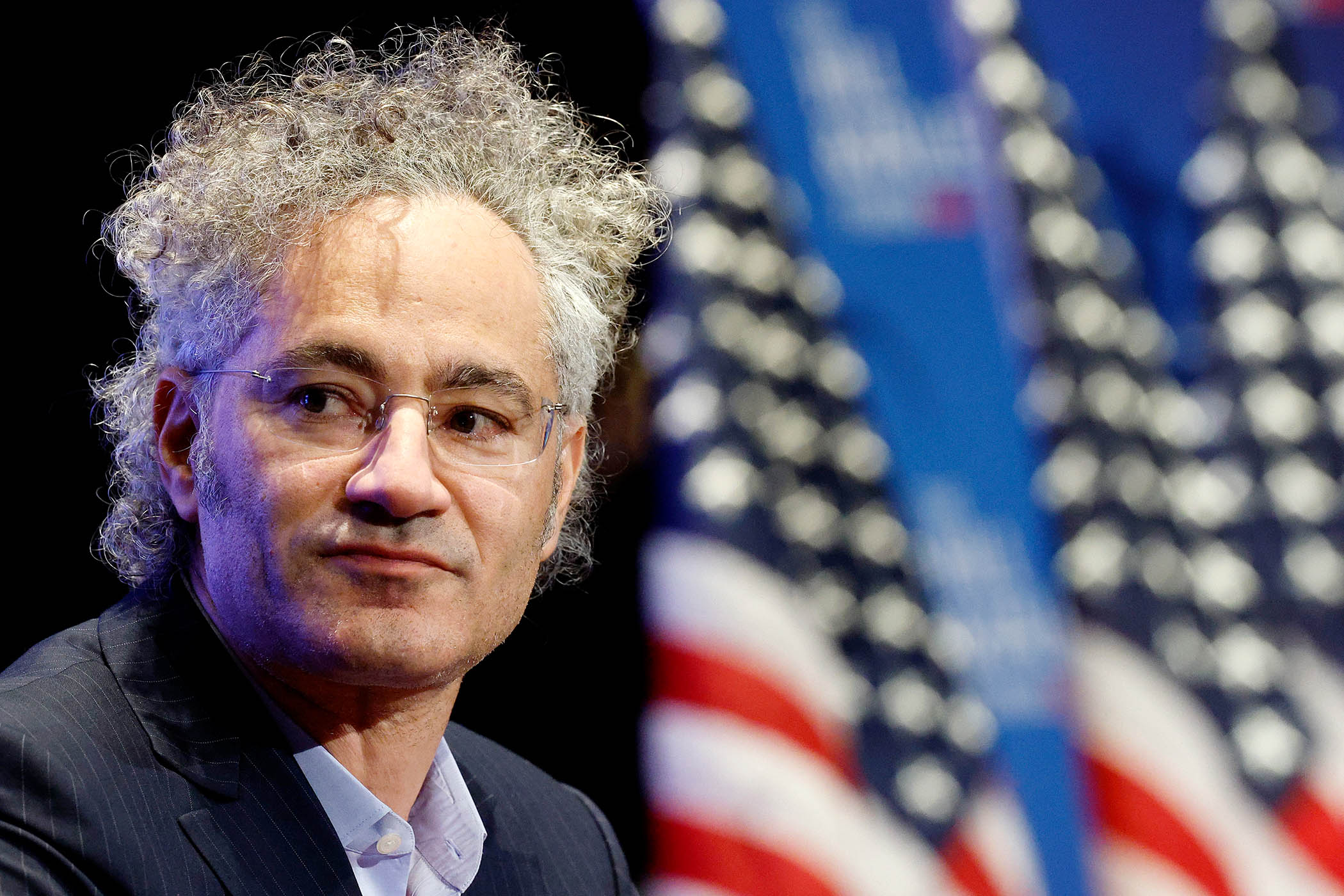The US tech firm Palantir plans to invest £1.5 billion in Britain after winning a contract to sell its AI software to the Ministry of Defence.
So what? Palantir is one of the fastest growing companies in the sector. Its agreement with the military will see it work to “transform lethality on the battlefield” by developing “AI capabilities”. Elsewhere, its programmes are used by
•
the US Army to analyse drone footage;
•
the Israel Defense Forces to identify targets; and
•
Los Angeles’s police department to predict crime patterns.
Riding high. This work has made Palantir the subject of protests and also hugely profitable. Its value has soared by 600 per cent over the past year to reach $400 billion, driven by the success of its AI software and its close ties to the US government, which is its biggest client.
Recap. Palantir was co-founded in 2003 by Peter Thiel, a supporter of Donald Trump who started PayPal with Elon Musk in the 1990s. The company is named after the “palantíri” crystal balls from The Lord of the Rings and refuses to do business with countries opposed to the west.
USP. Palantir specialises in sifting through vast quantities of disparate data. Gotham, one of its flagship products, helps defence and police clients integrate databases and quickly cross-reference information. This can be used to profile crime suspects or, as Palantir puts it, support soldiers in “an AI-powered kill chain”.
Related articles:
Best customer. Palantir has worked closely with the US government, especially the Pentagon, for years. But this relationship has deepened significantly during Trump’s second term, even as the administration has cancelled contracts for other firms as part of its efficiency drive.
Deals, deals, deals. In July the company signed a deal with the US Army worth $10 billion. Other recent contracts include a $795 million award to help the Pentagon develop an AI target-identifying system called Maven and an agreement with the IRS to streamline its databases. Another with US Immigration and Customs Enforcement involves designing a system to track undocumented migrants and select candidates for deportation.
Pushback. The deal with ICE prompted more than a dozen former Palantir employees to warn the company was increasingly complicit in “normalising authoritarianism”. Palantir has previously said that the preservation of civil liberties is at the centre of its mission.
Across the pond. Earlier this year Palantir struck a £500,000 per year deal with Coventry City Council to help it summarise social worker notes and enhance its systems for children with special needs. In 2023 it struck a £330 million agreement with the NHS to manage its data and build a repository that includes patient information.
Amnesty International objected on human rights grounds, while some raised privacy concerns. NHS England has stressed that Palantir and other partners would not be able to access health data without its explicit consent.
In Gaza. Palantir has been accused of helping to develop Gospel and Lavender, software systems used by the Israeli military to identify targets among the Palestinian population. Palantir strongly denies these claims. When challenged at a public forum in May about his technologies killing Palestinians, Karp replied: “Mostly terrorists, that’s true.”
What’s more… Silicon Valley as a whole has expanded from social media and consumer tech into national security and defence. But greater oversight may be on the way. Trump’s budget bill sought to prevent AI from being regulated for ten years. The provision was defeated.



